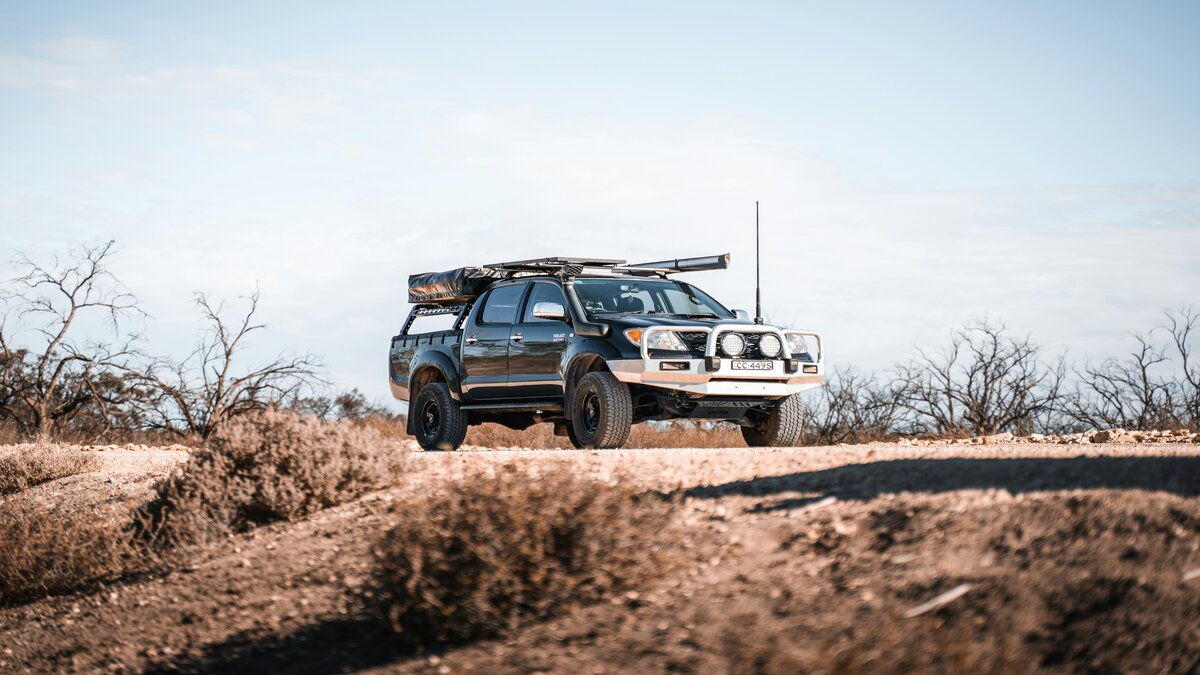There are plenty of times where a business owner or sole trader might find themselves considering a chattel mortgage. Or, at least, wondering what a chattel mortgage is.
Chattel mortgages are often used by businesses or sole traders to purchase things like equipment or cars for business use. Some lenders might be referring to a chattel mortgage when offering a commercial car loan, an equipment loan, a goods loan, or a bill of sale.
Let’s dive into the ins and outs, as well as the benefits and drawbacks, of chattel mortgages.
Definition of chattel mortgage
If you’re familiar with how secured car loans and traditional home loans work, the idea behind a chattel mortgage probably won’t be foreign.
It sees a loan taken out to purchase a moveable asset, which is then put up as collateral for the loan.
“A chattel mortgage is the most common type of loan that businesses use to purchase vehicles,” a CarLoans.com.au spokesperson told Savings.com.au.
“It has a similar structure to a fixed-rate traditional home loan which is also usually secured against the home.”
The name ‘chattel mortgage’ can be broken into two parts:
-
Chattel: An item that a person owns
-
Mortgage: An agreement wherein a lender provides a borrower with money to buy an asset and the borrower promises to pay the funds back (plus interest) over an agreed term, with the asset acting as security for the loan.
How does a chattel mortgage work?
Under a chattel mortgage, a business, business owner, or individual will buy a piece of equipment, car, or another asset using cash provided by a lender.
They will then pay back the money borrowed, plus interest over a period of time. If they don't, the lender can typically repossess the item the loan is secured against, similar to how a bank can repossess a house if its owner defaults on their mortgage.
“It can be a good option for purchasing a car because the loan is secured so you could get a more attractive interest rate,” a CarLoans.com.au spokesperson said.
“They are available for some businesses or individuals who use their car mainly for business.
“An individual who uses their car primarily for business could also get a chattel loan without an ABN.”
The term of a chattel mortgage is generally between one and seven years and the interest paid can often be claimed as a tax deduction, as can depreciation on the asset and GST paid on its purchase.
Some chattel mortgages will offer a ‘balloon payment’. That means a borrower can choose to pay a portion of the asset’s cost as a lump sum at the end of their loan’s term, rather than throughout.
“A balloon payment lowers monthly repayments to free up cash flow which can then be used for other business purposes,” a CarLoans.com.au spokesperson said.
“The drawback is that you could pay more in the long run because you have a larger amount outstanding for longer, and you do have to make the large repayment at the end.”
Do you need a deposit to take out a chattel mortgage?
Whether you need a deposit to take out a chattel mortgage will likely depend on your financial situation and lender.
Many lenders don’t demand a deposit on vehicles or equipment bought through a chattel mortgage. But having one might make a business or sole trader a more attractive borrower or see them qualify for a lower interest rate.
Tax benefits from chattel mortgages
As mentioned above, chattel mortgages can offer some businesses notable tax benefits.
Those benefits relate to various different areas of Australia’s taxation system, as H&R Block director of tax communications Mark Chapman told Savings.com.au.
-
“Your business can claim the GST on the initial purchase price of the asset,” Mr Chapman said.
If a business was to buy a car, for instance, it would likely end up paying a chunk of goods and services tax (GST) on the purchase. If the business is GST registered, that chunk can be included in its business activity statement (BAS) and, potentially, provide a GST credit.
-
“You can claim depreciation on the asset,” he said.
Anyone who has owned a car they plan on selling in the future will be well aware of how fast they can depreciate. Fortunately, businesses can often claim depreciation of cars, equipment, and other assets as a tax deduction.
-
“All interest payments – but not the repayments of capital – are tax deductible,” Mr Chapman said.
That’s right, the interest component of chattel mortgage repayments might be able to be claimed as a tax deduction. That could be an enticing proposal for some business owners or sole traders.
Pros and cons of a chattel mortgage
As with all financial products, there are benefits and drawbacks of taking out a chattel mortgage. Here are just a few:
Benefits of a chattel mortgage
- The borrower owns the asset the loan is used to purchase – potentially offering balance sheet-benefits that other types of finance might not
-
A borrower can use the asset they’re purchasing as security for their loan
-
For that reason, chattel mortgages typically offer lower interest rates than unsecured business loans
-
Potential to realise tax benefits from repayments and depreciation, as well as GST credits
Drawbacks of a chattel mortgage
- If a borrower doesn’t meet their repayments, their lender can repossess the asset the chattel mortgage is used to purchase
-
Chattel mortgages, like many other financial products, can come with additional or unexpected fees
-
Assets purchased with chattel mortgages typically have to be used for business purposes
Spot the difference: Chattel mortgage, hire purchase, or lease
If you’re a business owner or sole trader researching how you might fund the purchase of a new car or piece of equipment, a chattel mortgage is probably just one of a handful of options you’ve come across.
“Other common types of car finance arrangements are hire-purchases, finance leases, or operating leases,” a CarLoans.com.au spokesperson said.
Hire purchase (or commercial hire purchase)
A hire purchase, or commercial hire purchase, differs from a chattel mortgage as the borrower doesn’t actually own the asset. Instead, the lender will purchase the car or equipment on their behalf and hand ownership over on the loan’s expiry.
Finance lease (or vehicle lease)
Like a hire purchase, a finance or vehicle lease also requires the lender to purchase an asset on a borrower's behalf.
However, unlike a hire purchase, this type of financing means the person or business using the asset simply leases it for an agreed amount of time. At the end of the agreement, they typically have the option to pay a balloon payment in return for full ownership of the asset or to start a new lease on a new asset.
Operating lease
Like a finance or vehicle lease, an operating lease sees a lender provide a customer with an asset – typically a car – for a set period of time in exchange for a fee.
The reason it differs from the aforementioned leases is because, under an operating lease, the lessee isn’t responsible for the day-to-day costs that cars bring. At the end of the agreement, the lessee can simply wave goodbye and walk away consequence free.
It’s worth mentioning that neither a finance lease nor an operating lease sees any debt chalked onto a company’s balance sheet, which can be an attractive proposal for some businesses.
Savings.com.au’s two cents
A chattel mortgage is a type of business finance product that, like a traditional home loan or a secured car loan, sees a loan backed by the car or equipment it's taken out to purchase. By securing the loan, a borrower might realise a lower interest rate over the life of their loan.
Chattel mortgages can also offer tax benefits to some businesses and allow them to own the asset from the get-go, unlike some other popular financing products.
Though, if a borrower defaults on their chattel mortgage, the asset they purchased with the borrowed funds could be repossessed.
If you’re considering or hoping to sign onto a chattel mortgage, you might find it worthwhile to reach out to a qualified financial advisor for advice.
Image by Dan Gold on Unsplash



 Denise Raward
Denise Raward
 Harry O'Sullivan
Harry O'Sullivan

 Harrison Astbury
Harrison Astbury


